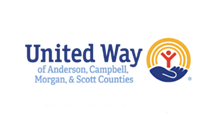‘Technology is just a tool. In terms of getting the kids working together and motivating them, the teacher is the most important.’ Bill Gates
Technology isn’t one thing. It isn’t the root of every modern problem, nor is it a panacea. Tech is simply a tool, and one that has been increasingly used in schools and by educators to enhance their lessons and teaching. Digital Learning Day, honored on February 23, celebrates the ways in which technology is being integrated in learning environments. The official website describes digital learning as “any instructional practice that effectively uses technology to strengthen a student’s learning experience. It emphasizes high-quality instruction and provides access to challenging content, feedback through formative assessment, opportunities for learning anytime and anywhere, and individualized instruction to ensure all students reach their full potential…”
Emory Valley Early Learning Center and East Tennessee Technology Access Center both capitalize on the range, adaptability, and specificity that technology in their programs to allow their students and clients to reach their full potential. At EVELC, for example, three- and four-year-olds learn with the help of two smart boards, purchased with the help of a generous grant. Smart boards are interactive whiteboards, which, while they can operate like a normal whiteboard, also allow teachers to display images, videos, and interactive games and activities for the class. So when the kids are learning about the solar system or about bear behavior, they aren’t confined to small images printed in a book; they’re able to see the swirling storms on Jupiter in pictures five feet high, and feel immersed in video of a bear den. The teachers are even able to find music and dance lessons for the students!
Both EVELC and ETTAC have reading programs that heavily incorporate technology to allow readers young, old, and in between to enjoy a range of books. EVELC uses a listening center with headphones and books on CD for the little ones to follow along as they read. They children also use Leapfrog interactive toys that advance their listening and literacy skills.
At ETTAC, a couple different reading programs run that cater to the varying needs of their clients. The Reading Lab offers software for visitors to work on literacy, fluency, and comprehension skills at their own level and pace, from kindergarten to adulthood. Students are even able to access the programs remotely; after an initial consultation, any computer with internet access – at home, in the library, or even a coffee shop – becomes a portal to the Reading Lab and its software.
ETTAC also hosts the Next Chapter Book Club. In some ways, the club functions like any other book club – a group of people to read a book together and discuss. But in Next Chapter – which partners with Emory Valley Center and Ridgeview, among other community partners – employs special tools to facilitate the reading experience for some members. For example, if a book club member has difficulty speaking or speaks quietly, they may use a voice amplifier, a tiny microphone and speaker, much like a mini karaoke machine. Other members may use the Anybook Reader, a small device that plays back previously recorded passages of the book for those who are unable to read aloud themselves.
Modern technology can be diverting, innovative, dangerous, or comical, but for these agencies it is enriching. The specific combination of versatility and specificity of digital tools makes them invaluable in modern classroom settings, regardless of the age or capabilities of the student. EVELC and ETTAC have both capitalized on the tremendous power of these modern gadgets to provide their clients with the best learning experiences and we couldn’t be more impressed with their success!


